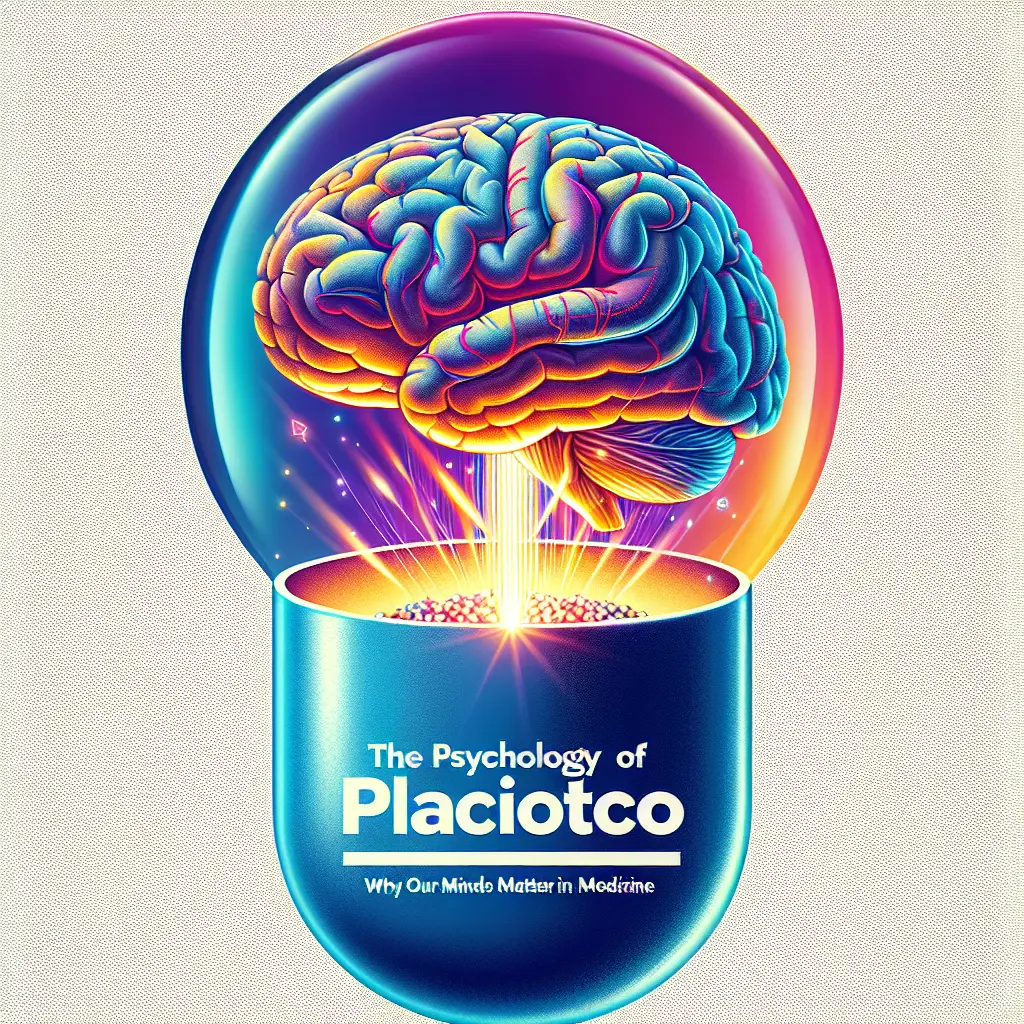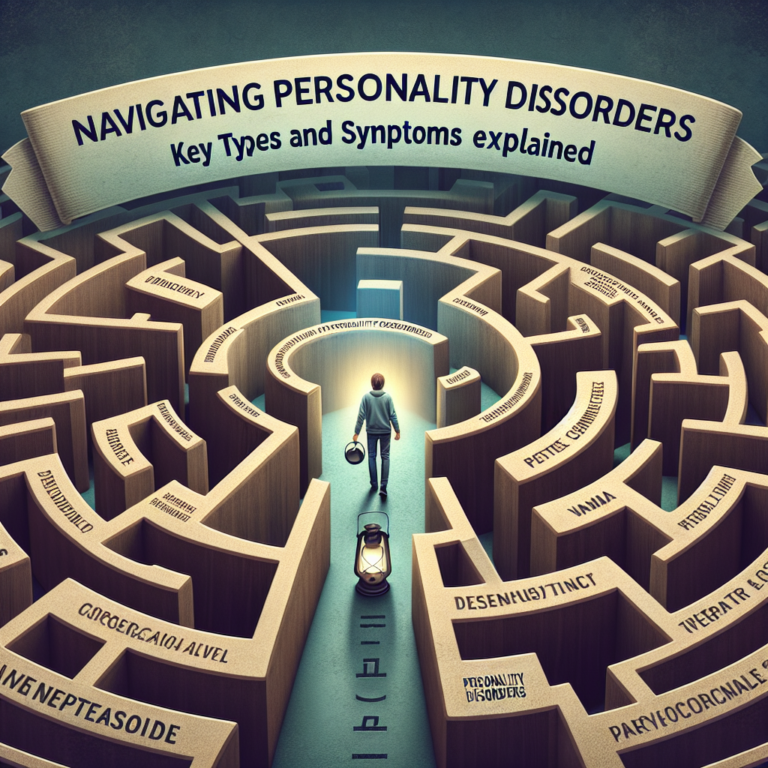
The Psychology of Placebo: Why Our Minds Matter in Medicine
Introduction
Imagine walking into a doctor’s office, feeling apprehensive about your health. The physician prescribes a treatment that you believe will relieve your symptoms, yet unbeknownst to you, it’s a sugar pill. Remarkably, as days pass, your condition improves significantly. This curious phenomenon, referred to as the placebo effect, highlights an intriguing facet of human biology: the extraordinary power of the mind.
The concept of the placebo—a treatment with no active therapeutic effect—raises pivotal questions about the connections between our psyche and our health. When we delve deeper into The Psychology of Placebo: Why Our Minds Matter in Medicine, we uncover layers that bring into focus how belief, expectation, and emotional states influence healing. This article will explore these dimensions, unveiling insights into the psychology of health and illness, supported by case studies and practical applications. Let’s demystify why our minds are crucial in the medical landscape and how understanding the placebo effect can revolutionize patient care.
The Science Behind Placebo
The Mechanism of Placebo
At its core, The Psychology of Placebo: Why Our Minds Matter in Medicine relies on several psychological and physiological mechanisms. The placebo effect occurs when patients experience real changes in their health after receiving an inactive treatment, primarily due to their expectations. This effect can trigger the body’s own healing processes, influencing the brain’s neurochemistry and promoting positive changes in health outcomes.
Neurobiological Evidence
Recent studies have demonstrated that the placebo effect activates particular brain regions responsible for pain perception and emotional regulation. For instance, in a study published in the journal Neuron, researchers used neuroimaging techniques to observe healthy participants receiving a placebo while experiencing pain. They found that the activation of the brain’s opioid system validated the powerful connection between belief and biochemistry (Benedetti et al., 2011).
| Part of the Brain | Function |
|---|---|
| Anterior Cingulate Cortex | Pain perception and processing |
| Prefrontal Cortex | Expectation and belief |
| Limbic System | Emotional regulation |
Through this interplay, we see that patient expectations shape not only the psychological response to treatment but also the biological mechanisms that can lead to tangible improvements in health.
Case Studies Illustrating the Placebo Effect
Case Study 1: The Knee Surgery Experiment
In 2002, an enlightening study published in the New England Journal of Medicine followed patients undergoing arthroscopic surgery for knee osteoarthritis. The participants were divided into two groups; one received the actual surgery, while the other underwent a sham procedure, where incisions were made without any surgical intervention.
Key Takeaways
Surprisingly, both groups reported significant improvements in pain and mobility, demonstrating the remarkable capacity of belief and expectation. This case underscores The Psychology of Placebo: Why Our Minds Matter in Medicine; people can heal from conditions based solely on their expectations.
Case Study 2: The Role of Conditioning
Another intriguing case comes from the work of Dr. Fabrizio Benedetti and his team, who investigated the role of conditioning in placebo responses. They conditioned patients with chronic pain to associate a particular stimulus with relief. Patients who received a genuine analgesic response to a specific sound later exhibited pain relief merely upon hearing the sound, even when given a placebo.
Key Analysis
This study shows that classical conditioning can reinforce the power of the placebo effect. Such insights bend the interpretation of the placebo effect as not merely “mind over matter” but a comprehensive interaction of physical and psychological responses.
The Role of Expectation and Belief
Expectation: A Dual-Edged Sword
The Psychology of Placebo: Why Our Minds Matter in Medicine is inherently tied to the concept of expectation. Positive expectations can lead to substantial improvements; however, negative expectations can yield adverse outcomes—a phenomenon known as the nocebo effect. It is essential to understand that not all mindsets are beneficial.
Strategies to Cultivate Positive Expectations
Patient Education: Instilling hope and understanding in patients can leverage the placebo effect. Educating patients about how their thoughts can influence outcomes can be profoundly beneficial.
Building Therapeutic Alliances: Establishing rapport between healthcare providers and patients fosters an environment where positive expectations thrive.
- Visualization Techniques: Encouraging patients to visualize positive outcomes can reinforce their expectations of recovery.
The Emotional Aspect of Healing
Emotional wellbeing plays a crucial role in the efficacy of the placebo effect. Stress and anxiety can hinder therapeutic outcomes, while positive emotions can enhance healing.
Emotional Resilience and Its Impact
Consider patients who approach their illness with resilience and a positive outlook. Research indicates that these individuals have better health outcomes, partly due to the psychological buffer that reduced stress offers. Emotions and perceptions intertwine to influence bodily responses, showcasing yet another layer of The Psychology of Placebo: Why Our Minds Matter in Medicine.
Clinical Applications of the Placebo Effect
Integrating Placebo into Clinical Practice
Understanding the dynamics outlined in The Psychology of Placebo: Why Our Minds Matter in Medicine has profound implications for clinical practice. Physicians can harness the power of the placebo by:
Crafting Positive Interactions: The way information is conveyed matters. Clinicians can frame treatments positively, enhancing the likelihood of favorable patient outcomes.
Using Placebo Wisely: In some clinical trials, placebos are administered ethically to gauge treatment efficacy and ensure patients are aware of the potential effects.
- Holistic Treatment Approaches: Integrating mental health support with physical treatments can enhance recovery rates by tapping into the placebo effect strategically.
Table: Application Strategies
| Strategy | Description |
|---|---|
| Positive Framing | Presenting information in a hopeful manner |
| Patient Empowerment | Involving patients in their treatment plans |
| Psychoeducation | Educating patients about the mind-body connection |
The Ethical Dimensions of Placebos
The Thin Line of Deception
Ethical considerations surrounding placebos warrant careful thought; while the potential benefits are tantalizing, the implications of deception in medicine can complicate matters. Transparency about treatment methods is generally fundamental. However, some advocate for the use of placebos when patients are fully informed and give consent, emphasizing the complexity at the intersection of The Psychology of Placebo: Why Our Minds Matter in Medicine and ethics.
Establishing Trust in Patient-Doctor Relationships
Developing a trustworthy relationship can mitigate concerns surrounding the ethical use of placebos. When patients feel valued and respected, they are more receptive to engaging with their treatment and understanding the role of their mindset in recovery.
Conclusion
The exploration of The Psychology of Placebo: Why Our Minds Matter in Medicine reveals compelling evidence that our mental states significantly influence our health outcomes. By understanding and leveraging the power of belief, expectation, and emotional wellbeing, healthcare professionals can enhance recovery rates and patient satisfaction.
Inspirational Takeaway
Ultimately, the key to unlocking the potential of the placebo effect lies within us. As patients, maintaining a positive outlook, fostering resilience, and understanding our relationship with our health can be the first steps toward healing. Our minds matter profoundly in medicine, and with this knowledge, we can navigate our health journeys with confidence and optimism.
FAQs
1. What is the placebo effect?
The placebo effect is a phenomenon where patients experience real changes in their health after receiving a treatment with no active therapeutic effect, primarily due to their beliefs and expectations.
2. How does expectation influence treatment outcomes?
Positive expectations can lead to better health outcomes, while negative expectations can lead to the nocebo effect, which can worsen symptoms or conditions.
3. Are placebos ethical in medical practice?
The ethical use of placebos can be complex; transparency is essential, but in some cases, protocols can permit their ethical use when patients are informed and consent.
4. Can emotional wellbeing affect the placebo effect?
Yes, emotional wellbeing plays a critical role; positive emotions can enhance the placebo effect, while stress and anxiety can hinder health recovery.
5. How can healthcare professionals harness the placebo effect?
Healthcare professionals can enhance the placebo effect by fostering positive expectations, building therapeutic alliances, and integrating mental health support into treatment plans.
In exploring The Psychology of Placebo: Why Our Minds Matter in Medicine, we discover a landscape that emphasizes not just the treatments we receive but the profound power of belief and the mind in shaping our health journeys.











